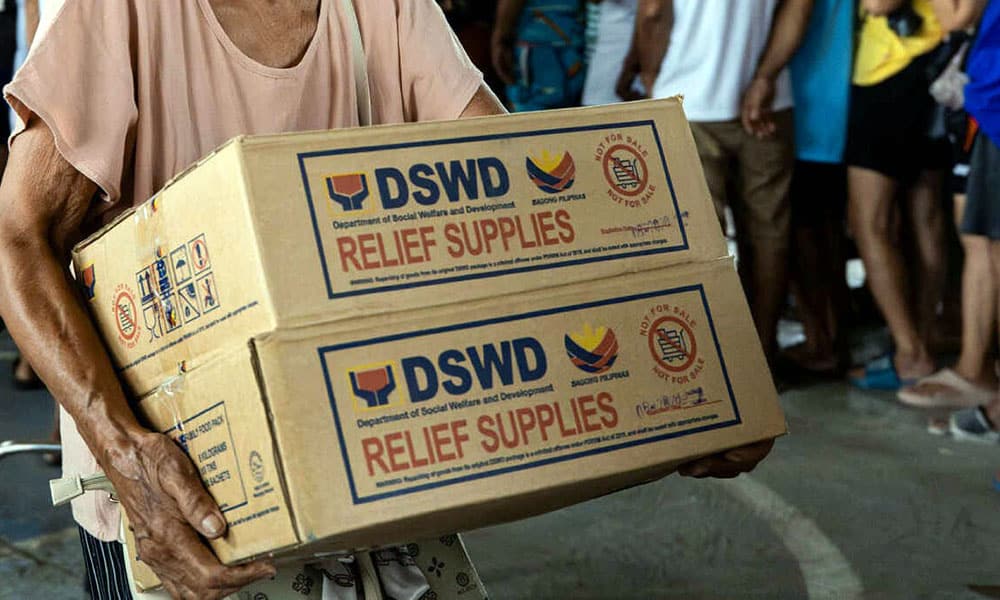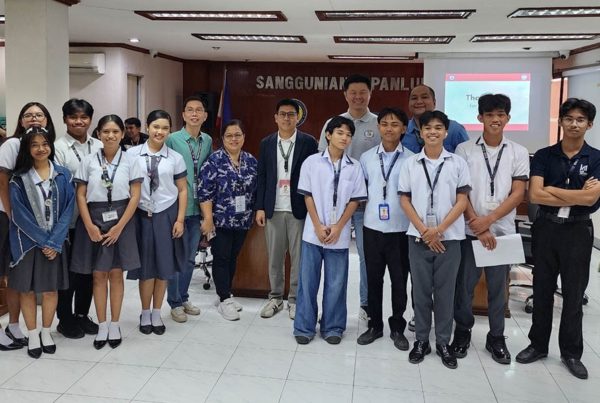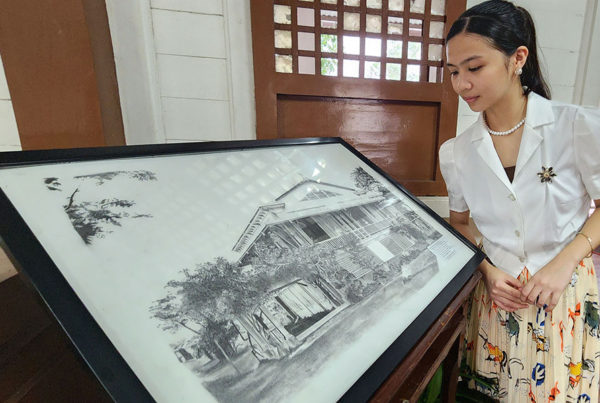
The ayuda, bow
 By Rex Catubig
By Rex Catubig
THEY are the calamity and crises staple. Once referred to as “Relief”, they have since mutated into various aid acronyms,–AICS, Tupad, 4P’s, etc., but are collectively popularly known as “Ayuda”, the palliative, temporary support in emergency situations, financial or in kind.
During typhoons, flooding and other disasters, natural or otherwise, “Ayuda” takes the form of food aid—in the now familiar, iconic DSWD cardboard box. The package commonly consists of 2 bags of rice, canned goods, noodles, coffee sachets, and the like. And it is augmented by the LGU with other stuff depending on its resources, enterprise, or initiative , aka “diskarte” in drawing NGOs and other civic groups to participate and contribute to the cause.
As palliative for the plight of calamity victims, they fall under the second requisite of the tripartite necessities in normal life: a roof above the head, food on the table, and clothes on the back.
The ‘Ayuda” pack includes canned comfort food beloved to our “kabaleyan” that have stood the test of time. Aside from their viability (they do not spoil easily) and ease of consumption (they could be eaten off the can), they are not begrudged and branded as discriminatory or “for the poor only” as the wannabe rich and the verily poor mutually enjoy partaking in them.
In fact, among the items, canned corned beef and sardines in tomato sauce are undoubtedly the Filipino nation’s top favorite convenience food, before cup noodles aggressively asserted itself. They’re a stellar alternative dish when there’s no food on the table. In my youth in the barrio, “Manabri ki lay carne norte” or “Manlukas ki lay sardinas”, was a culinary catch phrase that resounded in households to save the family from starving.
But, unfortunately, now, they have graduated by dint of hard luck as the main dish—prepared in the most creative ways to cope with hunger games for most families in daily combat with how to make both ends meet.
Back in the day, there was nothing apologetic or condescending about opening these canned foods. It was basically a matter of convenience because the food for the day was gone in a whiff and only its aftertaste was left for dinner. Or it could be when an episodic craving for “Stateside” hit you: note that it was Emery Corned Beef or Portola Sardines in oval can—both of which are imported brands, though guiltlessly affordable and unpretentiously available on the sari-sari shelves of Nana Pacing.
Contrast that to the present, where food is in short supply not only during a calamity, driving prices to the roof. Where there is a day-by-day struggle with the incredible shortage of even the basic condiments one sorely needs to make a measly meal at least palatable. Where in a country that pioneered rice technology, there is never enough harvest to feed the people. Ironically, for most, rice is what a full meal consists of and barely nothing else, sometimes literally sprinkled with just a pinch of salt.
Thus, one is left to wonder where the missing link is. How it has come to the point where relief food stuff is the hefty ransom paid upon being subjected to dire straits. The ongoing Senate hearings seem to unlock the secrets to the collapsing bag of tricks.
It boggles the mind that, as if the natural calamities are not bad enough, we are beset with an unconscionable economic maelstrom highlighted by the ongoing flood control scandals that have caused untold misery. These are the shameless factors that denigrate us to being feeble recipients of hand-outs and hand-me-downs. That makes beggars and paupers out of helpless men robbed of dignity by the sheer evil and greed of tone deaf, hard-hearted public servants and their ilk.
Inexorably reduced to “Ayuda” recipients, we are being programmed to accept government incompetence as the biblical norm to be accepted with insipid faith. Even in the face of millions of confidential funds, of billions upon billions of DPWH contracts, we are denied the right to a decent meal and deemed worthy to be privy only of crumbs.
We are being conditioned to believe that opening a can of Ligo sardines or Bingo corned beef constitutes the ideal democratic mode of life. And enough to be grateful for.
But that culinary oppression could lead to social hypertension–that, sooner or later, could rupture the nation’s incipient aneurysm.









